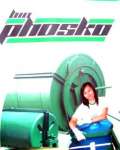Waste management - especially in big cities in Indonesia and is one of the problems that until now a challenge for city managers. Pollution from waste and urban waste, the most important in Indonesia, among others, mainly from domestic waste ( originating from households, schools, malls, markets, and commercial areas as well as other social) . Management model waste transported to landfill is also not a guarantee that city will become increasingly clear, because the quality of cleanliness of a city more dependent on the participation of citizens in maintaining cleanliness. Even the accumulation of garbage in the landfill, especially without proper management, could cause new problems with the generation of gas methane ( CH4) and leachate pollutants that seep into the soil, wells and rivers population.
Most of the technical options discussed during the waste if it is almost without considering the differences in the nature and origin of the local community culture techniques were developed, and even some parties simply applying technology developed in other countries but with different waste characteristics compared to Indonesia. Reality shows, almost all waste processing techniques are not applied properly appreciated by the people and government because they did not answer the challenge which the problem occurred or not in accordance with the realities in Indonesia. Policies that are born from Law. 18 of 2008 concerning waste management too, as well as other policies that followed the law, not enough if the government and stakeholders garbage problem do not lead or teach the public how it should be garbage in governance, or at least the government should attempt to socialize the need for change paradigm of ' managing' waste, that waste was not a problem but a boon and a blessing from the creator to be empowered.
For the purpose of municipal solid waste management program implemented based on economic, technological tools Rotary Kiln type composter and compost activators are introduced to problem solving is expected to give direction garbage in the city and commercial area with the introduction of the economic scale sewage treatment. Community-based economic approach is to provide an alternative in handling the waste problem in urban areas in particular, commercial areas ( industrial, factories, malls, food court, restaurants, hotels and industrial areas) and social areas ( schools, hospitals and places of worship) .
Bandung, August 2010
Sonson Garsoni
+ 62-81572527115
 | Mesin Kompos l Komposter Matic l Pencacah Organik l Olah Sampah - www.kencanaonline.com http://indotrade.co/olah_sampah/ |
- Contact Information
-
Name:
Mr. Sonson Garsoni [Director/CEO/General Manager]
E-mail:
Homepage:
Phone Number:
Mobile Number:
Fax Number:
Address:Jl. Pungkur No 115 B
Showroom & Workshop Jl Raya Banjaran No 222, Bandung Selatan 40376, Jawa Barat, + 62-812221160
Bandung 40251, Jawa Barat
Indonesia
- Average User Review
- There is no review for this company Write a review
Home
